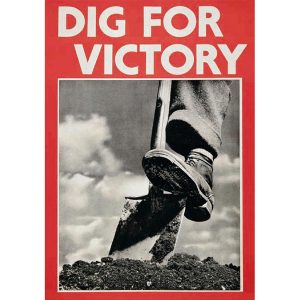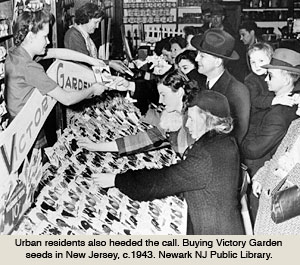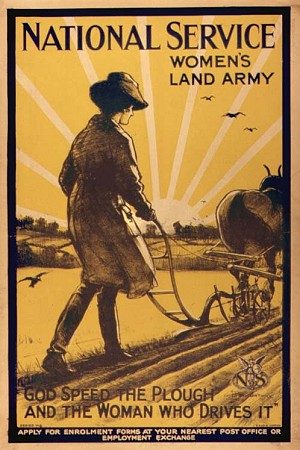 I can’t remember when this country has ever been so afraid, even more than it was in the days and months following 9/11. Except that what is clouding our hearts and our minds and our lives right now is not immediately recognizable as fear.
I can’t remember when this country has ever been so afraid, even more than it was in the days and months following 9/11. Except that what is clouding our hearts and our minds and our lives right now is not immediately recognizable as fear.
Even as their average constituent swallows hard and keeps looking for a job for the ninth or tenth or eleventh straight month, or longer, our leaders keep singing that more of the same – free passes for corporations, slashing environmental regulations, throwing money at anything anyone can stretch to label “job creation,” (except, of course, education) – will save us. It’s one big swamp of political truculence out there, built on the fantasy that unlimited economic expansion is possible at no real human or environmental cost. The “economy” — like corporations — must be worshipped as if it were a sentient being, pampered with infusions of our cash whenever it feels vaporous, in defiance of what we know and feel is good and right for us as people. Remember the visceral disgust so many of us on the left and the right felt after 9/11 when our president urged us to go shopping, and when car ads in September and October 2001 urged “No Money Down” against a backdrop of eagles and American flags? Forget your squeamish little feelings about the dead we’re ostensibly honoring. The real victim here might be The Economy, unless you hop to it and sign on that dotted line.
Similarly — and in light of recent history, truly bizarre to me — some economists are now panicking because people are putting money into savings instead of investing it, or spending it. Every financial planning guru out there – like your Depression-surviving grandparents – insists that savings are the foundation of financial security, and a safeguard against the kinds of accidents no one can predict. Investments are important, of course, as the circulating lifeblood of an economic body, but why, all of a sudden, is using your own common sense to shore up a savings account for your family “wrong?” Especially since it is a reality that people are losing their jobs for no good reason? I actually heard one economist – on NPR, no less – worry aloud that unless people started using credit cards more, Bad Things Would Happen. We’re struggling out of a crash caused at least in part by people – and banks, and brokerage firms – carrying the magical thinking of credit cards, that money is not real and spending has no consequences, to its extreme. Why on earth, then, would anyone discourage saving?
The question is whether we as Americans will turn, under so much evidence of its falseness, away from one of our most long-lived and comfortable fantasies: that there will always be enough natural resources for anyone, that the planet will support unlimited human and economic growth, and technology will be able to conquer any friction between what humans insist are our needs and what the planet insists is an increasingly overdrawn account. (Wendell Berry, of course, explains this better than me. And Hannah Arendt identified long ago the dangers to the human spirit of the totalitarian belief that through technology, “all is possible.”) Rick Perry opined recently that “global warming is just a theory, and we can’t risk jobs on a theory.” No one wants to remember there are no jobs on a dead planet. And no one wants to remember that “theory” is a sign of the humility proper to scientists and all other human beings: no reputable scientist is going to say “certainty.” They will, however, say “overwhelming evidence,” “strong likelihood,” “peer-reviewed studies,” and “indications pointing to…” They will say, along with some environmental activists: Put it this way. If I’m wrong, we have better fuel emissions standards, cleaner air, and a few less species headed for extinction. If you’re wrong, what do we have? Because, above all, no one – especially not elected officials – wants to say what their constituents are learning and practicing, however painful: we’ve got to change the way we’re living, house by house and life by life. Even — particularly — in times of danger, war, and fear.
 This photograph was taken in 1943 at the Women’s Horticultural College in Oxfordshire, England, as the British, like the American, homefront doubled down and prepared to produce their own food. The grassy moat around the Tower of London was used to grow vegetables. The phrase “Victory Garden” entered the national lexicon. As the poster you see at the top of this essay says, ordinary homefront citizens were urged to “Dig for Victory” and (as Shannon Hayes would say) convert their own household from units of consumption into units of production in order to support the war effort. Look at what this involved — self-sufficiency, personal responsibility, physical activity and contact with realities of earth and air and water (rather than things with screens), willingness to accept that one’s own actions contribute to the big picture, politically, and the willingness to make changes to alter one’s own behavior, even when it was hard, reusing and mending and making do. And look at what it did not involve: injunctions to consume goods, passively, while pretending everything was normal so The Economy would not be spooked. People bought seeds, not new cars or cellphone models. And then they went out and planted them. Everyday human life and economies were tied in with the national economy of war in a way that makes homefront reactions to 9/11 and its aftermath — the wars in Iraq and Afghanistan, in which leaders asked for no sacrifice or lifestyle change — seem vaguely shameful, to me and to a lot of others. I’m far from the first to note that the average American’s daily life has not been affected very much by the wars in Iraq and Afghanistan. This is not a good thing.
This photograph was taken in 1943 at the Women’s Horticultural College in Oxfordshire, England, as the British, like the American, homefront doubled down and prepared to produce their own food. The grassy moat around the Tower of London was used to grow vegetables. The phrase “Victory Garden” entered the national lexicon. As the poster you see at the top of this essay says, ordinary homefront citizens were urged to “Dig for Victory” and (as Shannon Hayes would say) convert their own household from units of consumption into units of production in order to support the war effort. Look at what this involved — self-sufficiency, personal responsibility, physical activity and contact with realities of earth and air and water (rather than things with screens), willingness to accept that one’s own actions contribute to the big picture, politically, and the willingness to make changes to alter one’s own behavior, even when it was hard, reusing and mending and making do. And look at what it did not involve: injunctions to consume goods, passively, while pretending everything was normal so The Economy would not be spooked. People bought seeds, not new cars or cellphone models. And then they went out and planted them. Everyday human life and economies were tied in with the national economy of war in a way that makes homefront reactions to 9/11 and its aftermath — the wars in Iraq and Afghanistan, in which leaders asked for no sacrifice or lifestyle change — seem vaguely shameful, to me and to a lot of others. I’m far from the first to note that the average American’s daily life has not been affected very much by the wars in Iraq and Afghanistan. This is not a good thing.


September 11 is a day of remembering, of reflecting, of thinking about where we go from here to keep it from happening again. And it has to — has to — be more than a day of empty platitudes, after which we all go back to life as “usual,” meaning in too many cases the destructive, the exploitative, the unsustainable, in the name of “the economy,” which mostly makes the exploiters, unsustainers, and other Big Guys rich and leaves the rest of us out in the cold when the Big Guys have no use for us anymore. A free market works best when it’s in the hands of free people — as individuals, not corporations. First World ways contribute to inequity, environmental degradation, and injustice all over the world, and 9/11 made it impossible for us to believe we’re immune. What happens in Iraq or Sudan or Egypt or Iceland — in this interconnected series of economies, on this fragile planet – affects us all. And it is our great good work ahead to continue to put people back into our view of what an “economy” is and should be, to commit our hands to it as well as our hearts and minds, to get involved and make the right choices, in humility, about where our money goes and what it buys and what it supports. President Roosevelt famously remarked that “we have nothing to fear except fear itself.” And there is this about action, humble and community-focused and positive: it can push back the fear, connect us to larger goods, energize us to keep on going.
“We want not only the big man with the plough but the little man with the spade to get busy this autumn. Let ‘Dig for Victory’ be the motto of everyone with a garden.”
Rob Hudson, British Minister for Agriculture, in October 1939.
 https://www.youtube.com/watch?v=fkO5LVkcRgs&feature=player_embedded#!]
https://www.youtube.com/watch?v=fkO5LVkcRgs&feature=player_embedded#!]
This is a powerful post, CSI. Keep digging for these gems. KK
Man oh man. I couldn’t have said it better. It drives me crazy that I’m a member of a society whose health depends upon people buying new stuff they don’t need. I heard a report about Denmark that called that country “post-consumer”–meaning people have what they need and don’t seem especially inclined to buy extra. Sounds like a great place to live. Now I just need to learn Danish.
This was in the Atlantic (online) this month, on the importance of becoming a producer, not consumer society:
http://www.theatlantic.com/business/archive/2011/08/the-consumption-economy-is-dying-let-it-die/243628/
So, a lot of hard reality, tinged with hope. Maybe over the long term we will get it together as a country and start making things again. Maybe we will become innovators again. (And I’m not talking about fancy schmancy investment tools that nobody understands for the next “Farcebook.” Although I should be careful what I say about the latter… I do have an account.)